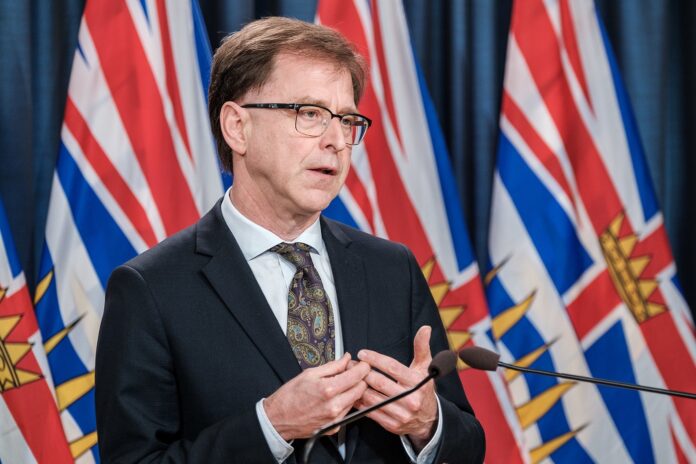THE Province announced on Wednesday that it is strengthening B.C.’s ambulance system to ensure it is faster and more responsive to British Columbians, a better place to work for paramedics and dispatchers, and able to rapidly meet changing demands and needs through focused and direct leadership.
“When we call for help, we need to know help is on the way, and that it will arrive quickly,” said Adrian Dix, Minister of Health. “Immediate action on operations, as well as stronger leadership and increased investment at BC Emergency Health Services, will deliver a more effective ambulance service for patients and families who depend on it. Better support for paramedics and dispatchers will help them do the vital work we count on every day.”
To ensure direct leadership of ambulance services, Dix is reconstituting the BC Emergency Health Services board of directors to focus solely on ambulance services. It will be directly accountable to the minister of health with a clear mandate to ensure better service for patients and families who rely on the services – and better supports for workers who deliver the service.
Dix has appointed Jim Chu, former chief constable of the Vancouver Police Department, to chair the board.
“Jim Chu has extensive experience leading front-line emergency services in British Columbia. I am confident he will provide the focused governance leadership BC Emergency Services needs to be an effective and high performing ambulance service,” Dix said.
Chu said: “I am enthusiastic to bring what I have learned from my time as chief constable of the Vancouver Police Department to this important role. I look forward to working together with the Ministry of Health, BC Emergency Health Services management, paramedics and dispatchers to ensure the ambulance service provides timely and exceptional help for British Columbians, and that it’s an outstanding employer for workers.”
Darren Entwistle, President and CEO, Telus, will serve as a special adviser to the board.
As well, Dix has directed that BC Emergency Health Services now be led by a chief ambulance officer responsible for the day-to-day management of the BC Ambulance Service.
Dix has appointed Leanne Heppell to serve as B.C.’s new chief ambulance officer on an interim basis. She is a trained clinical nurse specialist, currently serving as chief operating officer for acute care and chief of professional practice and nursing at Providence Health Care. Heppell has 20 years experience in senior leadership at Vancouver Coastal Health, Fraser Health and the BC Ambulance Service.
The Province is also acting immediately to reinforce ambulance operations by providing funding for:
* 85 new full-time paramedics;
* 30 full-time dispatchers;
* 22 new ambulances; and
* converting 22 rural ambulance stations to 24/7 ALPHA stations to enhance ambulance coverage for these communities.
* Six are scheduled to be running by October 2021.
* Plans for up to an additional 16 stations will be ready by October 2021.
To get paramedics and ambulances back on the road to respond to patient calls more quickly, the Province is directing health authorities to add additional staff to receive patients and care for them when they arrive at emergency departments.
The Province is taking immediate action to support workers. This includes a direction that BC Emergency Health Services is to contract a team of mental health and wellness professionals to work directly with dispatch staff and paramedics to address chronic stress, fatigue and support wellness among staff (including access to trauma-informed therapy).
The new board chair, working with the BC Emergency Health Services Board and chief ambulance officer, will ensure the BC Ambulance Service has the vision and strategy to secure its renewal, and will present the approach to the minister of health for consideration of additional action for 2022-23 and beyond.
To ensure British Columbians who call for help get the quickest and best possible emergency health response, the Province will return to the pre-COVID-19 first-responder dispatching practices for 911. The Province is also directing the Emergency Medical Assistants Management Licensing Board to examine expanding firefighters’ scope of practice. The deadline for recommendations is September 6, 2021.
These measures will benefit from continued collaboration between the BC Emergency Health Services and the Ambulance Paramedics of BC. They are working together to identify a range of measures to address employee wellness, operational performance, workload, response times, recruitment and retention, and public engagement. The Province recognizes the importance of this work and strongly supports this constructive and co-operative approach.
These measures build on the government’s record of investment in provincial ambulance services. Since 2017, the BC Emergency Health Services annual budget has increased from $424.25 million to $559.12 million a year, doubling the average annual spending increases compared to the previous year.
This has meant more paramedics, more dispatchers, and more ambulances on the road. Between 2017 and 2019, B.C. added 115 paramedic positions to support direct patient care, improve service and response times, and modernize dispatch operations. Since January 2021, 271 paramedics have been hired by BC Emergency Health Services.












